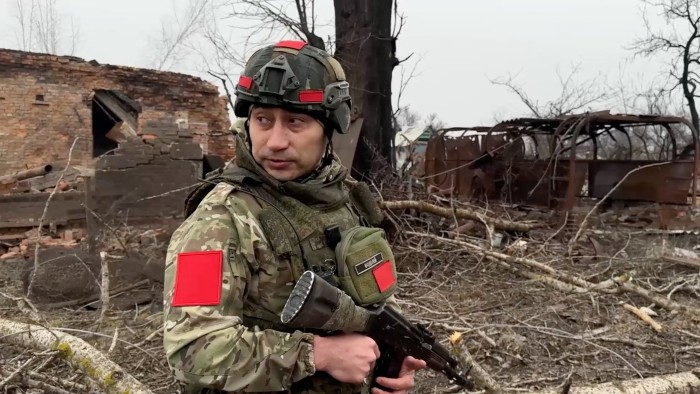Stay informed with free updates
Simply sign up to the War in Ukraine myFT Digest — delivered directly to your inbox.
The writer is editorial director and a columnist at Le Monde
Donald Trump may have impressed the Nato secretary-general, Mark Rutte, and his European partners with his abusive father act, but one leader seems immune to his tantrums: Vladimir Putin. “We get a lot of bullshit thrown at us by Putin,” the US president warned on Tuesday, frustrated by the lack of progress in his effort to achieve a ceasefire in Ukraine. The Russian leader’s response came loud and clear. Within hours, Moscow launched its largest drone attack on Ukraine, sending 728 drones and 13 missiles to strike cities around the country.
Trump, who boasted before his re-election that he could end the war in Ukraine in 24 hours, now has to contemplate the prospect of a long conflict. Unmoved by his pressure, Putin is determined to achieve his ultimate goal, which is to subjugate Ukraine, whatever the cost. Ukrainians for their part still show remarkable resilience and unflinching determination to resist Russian domination. This full-scale war, now in its fourth year, has become existential for both belligerents.
Twice in the past two weeks, in lengthy phone calls with Trump and with President Emmanuel Macron of France, the Russian leader has sent a clear message: any solution will have to address what he calls the “root causes” of the conflict. This would imply, in his view, pushing Nato’s borders back to where they were in 1997 and denying Ukraine any form of sovereignty. So much for a spirit of compromise.
Despite a staggering number of Russian casualties, which western sources put at 1mn killed and wounded, Putin believes that his battlefield superiority is growing. To him, not winning this war is unthinkable. He has built his country’s economy and his own legitimacy around it. Changing his narrative from “a special military operation to denazify Ukraine” to “fighting Nato’s aggression” makes it an open-ended project, a forever war that has become key to his survival.
Moreover, recruitment of fresh troops is now based on a bounty system that feeds the economic development of poor regions and allows the Kremlin to avoid an unpopular nationwide mobilisation. As Dmitry Muratov, editor of the independent Russian newspaper Novaya Gazeta and Nobel Peace Prize laureate, told me: “To their families, those soldiers are more valuable dead than alive.”
For Ukrainians, defeat would simply mean the end of Ukraine. The way Russian authorities have taken over territories they conquered in the East, methodically erasing any sign of national identity and cultural heritage, shows the depth of Putin’s commitment to the denial of Ukraine’s existence as a nation.
Ukrainians, too, think that they can fight on, despite devastating losses and manpower shortages. Progress by Russian forces, for all their might and their war economy, has been remarkably slow. Ukraine’s former foreign minister, Dmytro Kuleba, argues that Moscow has gone from occupying 18 per cent of his country’s territory in late 2023 to only 19 per cent today. Kyiv’s forces are still capable of delivering shocking blows to their enemy, as they did last summer with their incursion in the Russian region of Kursk and on June 1 with Operation Spiderweb, an audacious drone attack that inflicted serious damage on Russia’s strategic bomber force.
Less visible but even more consequential, Ukraine’s defence industry has increased production. It is now an important part of Europe’s military industrial base, which is undergoing profound changes as the continent re-arms. This is where the uncertainty over Trump’s strategy towards Russia and Ukraine, if there is one, plays a key role.
Over the past six months, European leaders have watched helplessly as the US president first courted Putin, aligned himself with the Russian president’s positions and berated Ukraine’s leader Volodymyr Zelenskyy — then changed his tune, going so far this week as to reverse the Pentagon’s decision to halt some arms shipments to Kyiv. Trump now says he is considering sending crucial Patriot air-defence systems to Ukraine.
But will he? Will he push a new sanctions package that could further weaken Russia’s economy? Confused by the back and forth, many in Europe suspect Trump may lose interest in Ukraine and turn to matters closer to his heart, as he did with North Korea in his first term. It will then be Europeans’ duty to help Ukraine repel the Russian aggressor by themselves. Defeat cannot be an option for them, either. “Do not imagine that if Ukraine is defeated, life beyond Hungary’s border will be peaceful,” warns a Finnish diplomat. “Ukrainians will then fight a guerrilla war, which Russia will repress using intolerable methods.”
One way or another, this will be a long war — however it ends.
